Course: Taoism, Confucianism, Business, China
Online Course: Sinic Economic Area. Confucianism, Taoism and Business (5 ECTS)
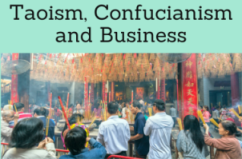
The Professional Course “Taoism, Confucianism and Business” taught by EENI Global Business School consists of four modules:
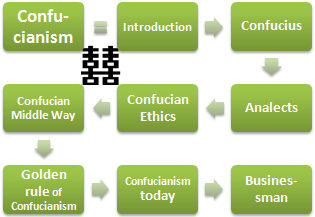
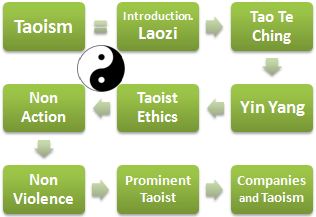
- Taoism and Business
- Confucianism and Business
- Other religions in China: Islam, Christianity and Buddhism
- Sinic Economic Area
 Enrol / Request for Information
Enrol / Request for Information

- Credits :
5

- Duration: five weeks
- Tuition Fees: EUR 120
- Open Online Enrollment
- Requires an average dedication of 12 hours per week
- Download the syllabus: “Taoism and Confucianism” (PDF)
Languages:  or
or  Religiones
de China
Religiones
de China  Religions de la
Chine
Religions de la
Chine  Religiões da
China (free multilingual training).
Religiões da
China (free multilingual training).
This course belongs to the following Higher Education Programs taught by EENI:
Doctorate: Ethics, Religions, and International Business, Asian Business, World Trade.
Masters: International Business, Religions and International Business.
The objectives of the course are the following:
- To know the pillars of Taoism and Confucianism
- To understand the ethical principles of these religions
- To study its influence on business and the Sinic Economic Area
- To analyze the profiles of Confucian and Taoist entrepreneurs and companies
- To define the characteristics of the Sinic Economic Area
- To explore the economic and political relations of the Sinic Civilization with the other civilizations (Western, Hindu, Buddhist, Islamic and African)
- To understand the processes of economic integration and the main Organizations related to the Sinic Economic Area
- To know the economic profile of the countries of influence of the Sinic Civilization
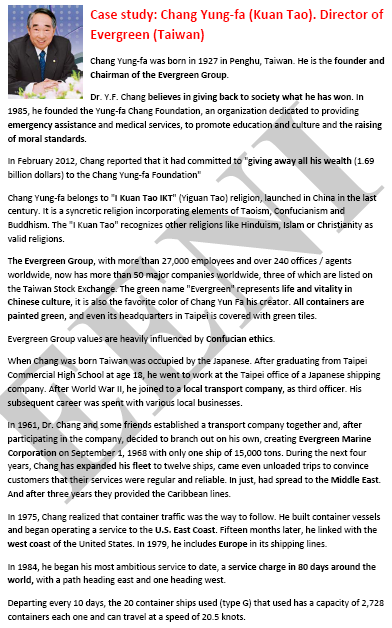

This course contains exercises that are evaluated, which the student must work out and pass to obtain the Diploma of the Professional Course: “Taoism, Confucianism and Business” issued by EENI Global Business School.

“The Benevolence is not to do to others what you would not want to be done to yourself” Analects XII-1 (Confucius).
Modules of the Course
1- Confucianism, Ethics and Business:
- Introduction to Confucianism
- The figure of Confucius
- The Analects (Confucian books)
- Fundamentals of Confucianism
- Arts of peace
- Education - Ritual
- Humanity
- Power
- Principles of the Confucian Ethics
- Confucian Middle Way
- The Man morally superior
- Right words
- Confucian Golden Rule
- The importance of Confucian hierarchy
- Influence of Confucianism in business
- Confucianism today
Chinese Companies and Confucian Values:
- Zhang Ruimin: Confucian businessman (China) “the essence of the globalization is localization”
- Chinese companies: Menglan, COSCO, KONKA, Sanhuan Guanxi, Jindie, Tianfa, Hong Qing Ting, Jiangsu Changfa
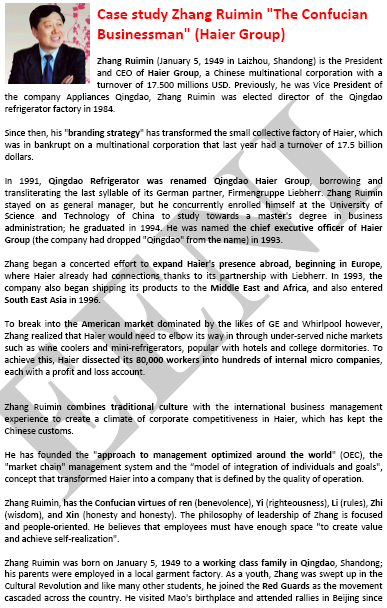
“With more rules and regulations, more people will impoverish” Tao LVII
2- Taoism, Ethics and Business:
- Introduction to Taoism
- Laozi (founder of Taoism)
- Tao Te King Tao (Sense) and Te (Virtue)
- Yin and Yang
- Principles of the Taoist Ethics
- Wu Wei: principle of non-action
- Non-violence and Taoism
- Control of senses
- Wisdom
- Detachment
- Taoism today
- Famous Taoists
- Government and Taoism
- Companies with Taoist influence. Chang Yung-fa (I-Kuan Tao). Director of Evergreen (Taiwan)
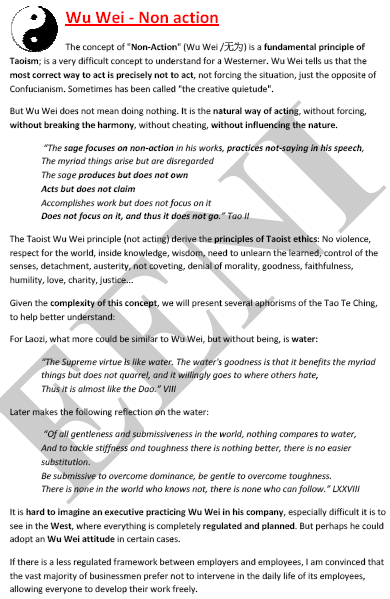
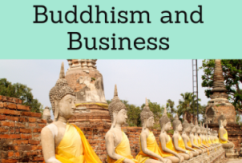
3- Other religions in China: Islam, Christianity and Buddhism
- Buddhism in China: the most important religion in China (even though China is a secular country)
- Christianity in China (67 million)
- Islam in China
- Shamanism
Note: the analysis of Buddhism is not done in this course, but in the course on Buddhism.
4- Sinic Economic Area
- The religions of China (Taoism, Confucianism and Buddhism) and their relationship with the Sinic Civilization
- Sinic Economic Area
- China as the central state of the Sinic Civilization
- Countries of the area of influence of the Sinic Civilization: China, South Korea, Hong Kong, Japan, Macau, Singapore, Taiwan and Vietnam
- Although Buddhism is the majority religion in Japan, the influence of Taoism and Confucianism is very significant in the Japanese culture as well as in Shintoism
- North Korea has historically been a country of influence of the Sinic Civilization. However, the communist dictatorship impedes freedom of religion
- The expansion of the Sinic Civilization in Africa (sinicization of Africa)
- The Diaspora of the Sinic Civilization
- Chinese businessmen and companies
- Economic integration of the Sinic Economic Area
- Interactions with the other civilizations
- Economic Organizations related to the Sinic Economic Area
Why study the course “Taoism, Confucianism and Business”?.
This Course is aimed at executives and companies wishing to do business in China (a BRICS Country, the largest market in the world), a market where the influence of Taoism and Confucianism (as well as Buddhism) is fundamental.
Taoism and Confucianism, Yin and Yang, responsibility and freedom, represent the two poles of the Chinese society; like the Yin and Yang, Confucianism would not exist without Taoism, and vice versa. These two traditions of wisdom, along with Buddhism and Shamanism are part of the Sinic Civilization and its entire area of influence: the Sinic Economic Area: China, South Korea, Hong Kong, Japan, Macao, Singapore, Taiwan and Vietnam
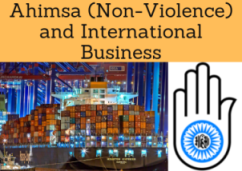

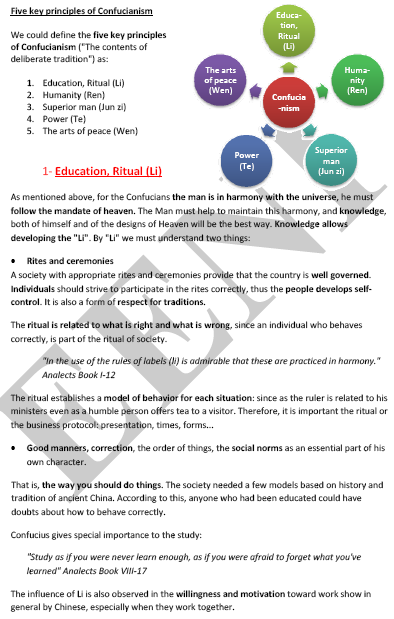
Economic integration of the Sinic Economic Area (economic organizations, free trade agreements...).
- Singapore and Vietnam are members of the ASEAN
- ASEAN Economic Community
- ASEAN Free-Trade Area
- Vietnam is part of the Mekong Economic Cooperation
- China, Japan, South Korea and the ASEAN countries are members of the ASEAN plus Three
- China-ASEAN Agreement
- ASEAN-Japan Economic Partnership Agreement
- ASEAN-South Korea Free Trade Area
- Other ASEAN trade agreements with Australia-New Zealand, Pakistan, Canada, India, the EU, Russia, U.S.
- China-Singapore Agreement
- Economic Association Agreements of China with Hong Kong and Macao
- China also has trade agreements with Japan and South Korea
- China has a framework agreement for economic cooperation with Taiwan
- Korea-Singapore Trade Agreement
- China, South Korea, Hong Kong, Japan, Singapore, Taiwan and Vietnam are members of the APEC and the PEEC
- China, Vietnam and Korea are members of the Asia-Pacific Trade Agreement and the Organization for Cooperation between Railways (OSJD)
- China and Vietnam are part of the Greater Mekong Subregion
- Japan has economic partnership agreements with Singapore, China, Vietnam and South Korea
- Singapore, Vietnam and Japan are members of the Trans-Pacific Economic Partnership Agreement (CPTPP)
- Singapore has trade agreements with Japan, Korea and China
Political-economic interactions of China with the other civilizations:
- Western Civilization
- Latin America: China has Trade Agreements with Chile, Peru, Costa Rica, Andean Community
- Europe:
- Trade agreements with Iceland, Norway, Switzerland
- EU-China Agreement
- Oceania: free trade agreement with New Zealand and Australia
- Islamic Civilization:
- China has Trade Agreements with Pakistan and the Gulf Cooperation Council (GCC)
- China is a member of the Central Asia Regional Economic Cooperation (CAREC) Programme formed by Afghanistan, Azerbaijan, Kazakhstan, Kyrgyzstan, Pakistan, Tajikistan, Turkmenistan, Uzbekistan and Mongolia (Buddhist country)
- Hindu Civilization: China-India Regional Trading Agreement
- Orthodox Civilization: China-Moldova agreement, China-Eurasian Economic Union agreement
- African Civilization:
- China-Africa Cooperation: a key trade-policy tool for the African development
- China has preferential trade agreements with practically all the African countries
- Africa-BRICS Countries (China is one of the BRICS Countries)
- Multi-civilizations Agreements: China is a member of the Shanghai Cooperation Organization formed by Muslim countries (Kazakhstan, Kyrgyzstan, Tajikistan and Uzbekistan) and Russia (orthodox country)
Political-economic interactions of South Korea with other civilizations:
- African Civilization:
- Africa-Korea Partnership
- Trade agreement with the SACU
- Hindu Civilization: India-Korea Agreement
- Western Civilization:
- Latin America: trade agreements with Peru, Chile, MERCOSUR, Mexico, Central America and Colombia
- North America: agreement with the U.S. and Canada
- Oceania: trade agreements with Australia and New Zealand
- Europe:
- Islamic Civilization: trade agreements with the GCC, Indonesia, Malaysia and Turkey
- Orthodox Civilization: trade agreement with Russia
Political-economic interactions of Japan with the other civilizations:
- African Civilization: Tokyo International Conference on African Development
- Hindu Civilization: Economic Association Agreement with India
- Western Civilization:
- Latin America: free trade agreements with Mexico, Chile and Peru
- Oceania: trade agreement with Australia
- Europe: partnership agreement with Switzerland and the EU
- Islamic Civilization: Economic Association Agreements with Brunei, Indonesia, Malaysia
- Orthodox Civilization: trade agreement with Russia
- Buddhist Civilization: trade agreement with Thailand
Political-economic interactions of Singapore with other civilizations:
- Hindu Civilization: India-Singapore Agreement
- Western Civilization:
- Latin America: agreements with Panama, Peru, Costa Rica and Mexico
- North America: agreements with the U.S. and Canada
- Oceania: agreements with Australia and New Zealand
- Europe: agreement with the EFTA
- Islamic Civilization: Agreements with Jordan, Pakistan and the GCC
- Orthodox Civilization: agreement with Ukraine
- Singapore is a member of the Indian-Ocean Rim Association
Political-economic interactions of Taiwan with the other civilizations:
- Western Civilization (Latin America): agreements with Panama, Guatemala, Honduras-El Salvador, and Nicaragua
Political-economic interactions of Vietnam with the other civilizations:
- Islamic Civilization: free trade zone with the Eurasian Economic Union
- Orthodox Civilization: Customs Union with Russia
- Buddhist Civilization: Laos-Vietnam trade agreement
- Vietnam is part of the Mekong River Commission
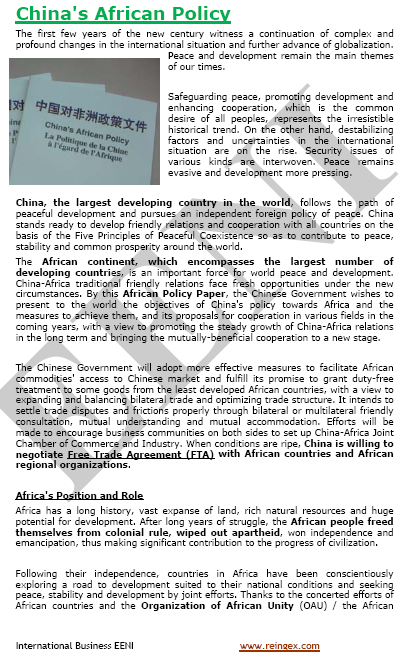
Other Economic Organizations related to the Sinic civilization
- Boao Forum for Asia
- Asia Cooperation Dialogue
- Asia-Europe Meeting
- FEALAC
- Asia-Middle East Dialogue
- Colombo Plan
- ESCAP
- Asian Development Bank
- Africa-Asia Strategic NAASP
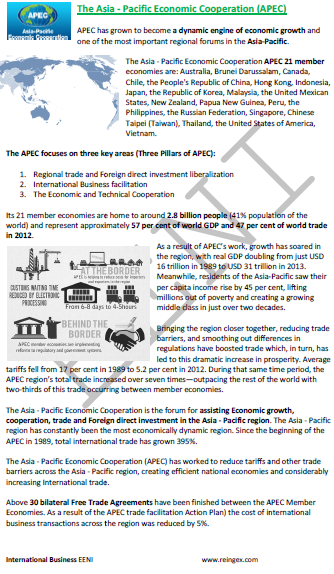
(c) EENI Global Business School (1995-2024)
We do not use cookies
Top of this page




